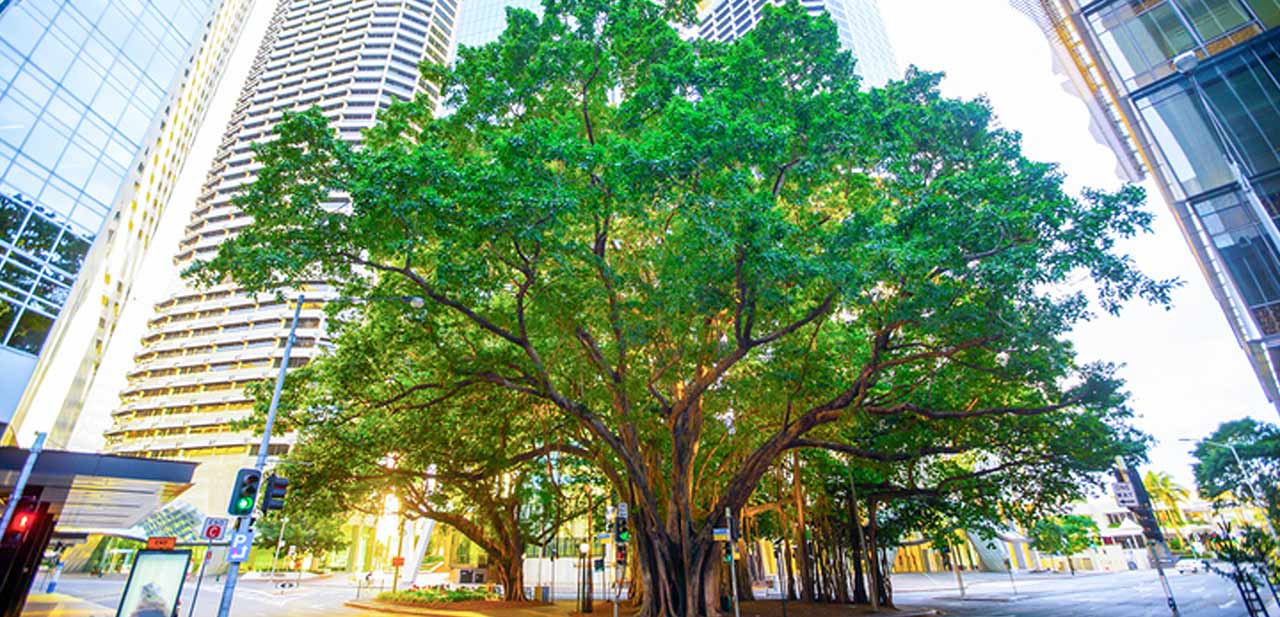- Article

- Sustainability
- Green Banking
Going for infrastructure gold at the 2032 Olympics
Capturing infrastructure opportunities at the next climate positive. Olympics Large-scale events offer vast opportunities for business, with the 2032 Olympics expected to deliver a benefit of more than $17 billion for Australia.
Hosting a mega-event like the Olympics can rapidly accelerate a city’s development. But to ensure sustainable growth, leaders must consider the legacy of the event, in terms of the social, environmental, business and investment outcomes.
That’s what the Queensland Government has been trying to do. It is working to deliver a climate positive Olympics while making the most of the opportunities from the Games, which it expects to provide a benefit of $8.1 billion for Queensland and $17.6 billion for Australia. In its Olympic bid documents, the government also estimated Queensland’s export revenues to increase by up to 0.4 per cent between 2020 and 2036, equivalent to a further $4.3 billion to $8.6 billion rise in investment.
As Brisbane gears up for the 2032 Summer Olympics, HSBC hosted a fireside chat with Cr Krista Adams, Brisbane City Council’s Deputy Mayor and Civic Cabinet Chair for Economic Development & the Brisbane 2032 Olympic and Paralympic Games, to discuss the biggest opportunities for infrastructure and development. She was joined by Greg Clark, HSBC Global Head of Future Cities and New Industries, as well as Jeremy White, State Manager for Queensland at HSBC.
Mega opportunities for the private sector
According to Cr Krista Adams, Brisbane’s focus is to deliver a climate positive Games, meaning it will go beyond just being carbon neutral and offset more emissions than it produces. Infrastructure and the property industry will be critical to achieving this and to ensuring the city has the venues and facilities to host the Games.
“Stay engaged with the council and keep your eye out for opportunities to have your say on how you’d like to see the city evolve over the next 10 years,” she said, addressing infrastructure and development companies.
Beyond infrastructure development, there are many other opportunities for business including the hospitality and hosting aspects of the Games, according to Greg Clark. “The capital used to develop infrastructure creates opportunities for co-investment by the private sector.”
The possibilities from Brisbane 2032 stretch far beyond Queensland.
“They’ll have significant national impacts, especially on the infrastructure, construction and development sectors,” added Jeremy White.
He pointed out how the Games could also fuel the biggest real estate renaissance in Brisbane’s history.
“Industry experts are predicting a decade of property price growth and see key infrastructure suburbs soar [in value],” he said.
Planning beyond the Olympics
Some of the infrastructure projects transforming Southeast Queensland and generating opportunities for business include the new Brisbane Metro, a new stadium and Cross River Rail. HSBC served as the lead arranger, underwriter, bookrunner and hedging provider for the Pulse consortium’s successful bid to build Cross River Rail.
Projects for the Olympics involve either the redevelopment of existing facilities or the building of new infrastructure needed by Brisbane and the rest of Southeast Queensland. According to Cr Adams, this follows the International Olympic Committee’s new norm, which is, “Don’t build anything you don’t need – don’t deliver infrastructure you don’t need as a growing city.”
Part of Brisbane’s strategy is to look beyond the Olympics.
“We’re planning for 2042, not 2032,” said Cr Adams. “We’re planning for what happens afterwards – the legacy of the Olympics and what Brisbane will look like after.”
Getting businesses to be carbon positive
While Brisbane City Council has been carbon neutral since 2016–17, it needs to encourage businesses to do their part, according to Cr Adams. This is critical if Brisbane is to meet its obligation to deliver a carbon positive Olympics.
“If you’re going for a tender for any aspect of the hospitality venues or construction or anything new that needs to be built, you need to be carbon positive,” she said.
Planning for the growth ahead
With Southeast Queensland expected to draw foreign investors, Clark advises infrastructure, development and construction companies to plan for growth. He expects new capital partnerships, an expansion of international businesses already in Southeast Queensland and a movement of companies to the region.
“If I were running an infrastructure or land use company in Southeast Queensland, I would be thinking about capital partnerships with institutional investors from all over the world that are looking to place their capital with partners that can deliver ‘sustainability dividends’,” he said.
Becoming climate positive through green financing
White expects the next 10 years of infrastructure building and development in Brisbane to be “off the charts”.
“It’s going to be so incredible to be living in this city,” he said.
“It’s fantastic that HSBC is one of the leading sustainable finance companies in the world and definitely ahead on the league tables in Australia. So if you need financing to achieve carbon positivity, then HSBC is the right company to speak to.”
Discover how HSBC can help you make the transition to a more sustainable business


